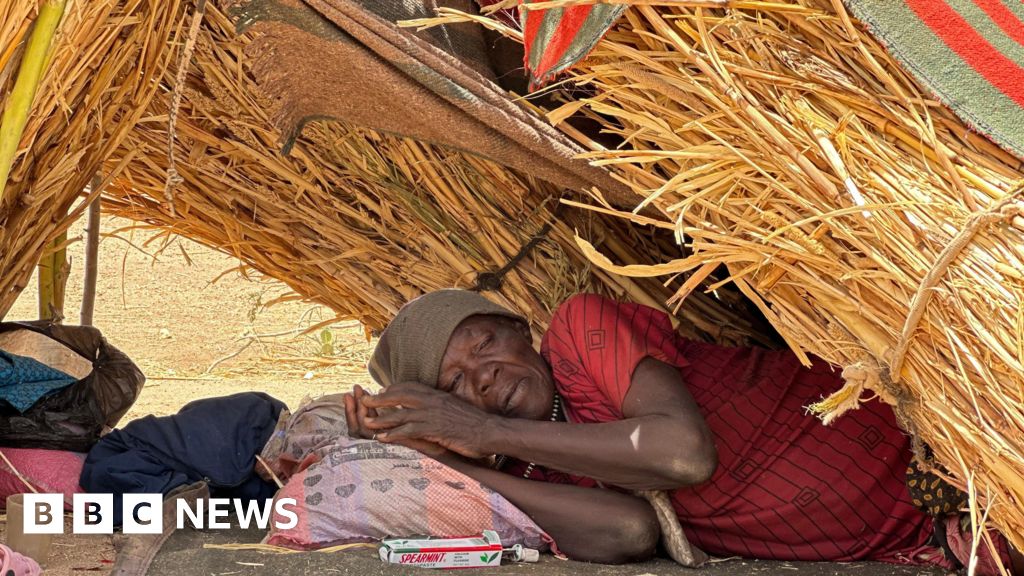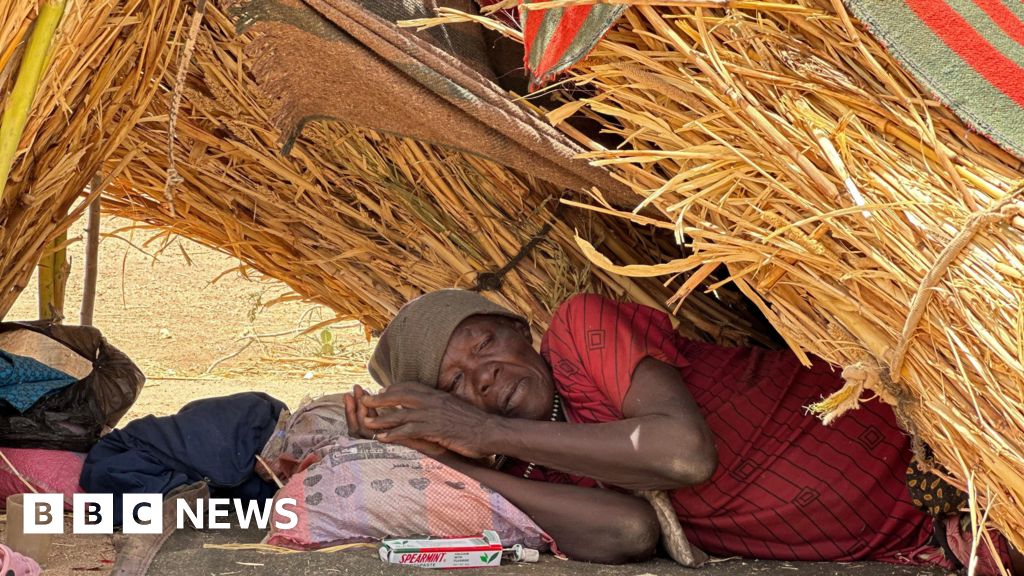
Sudanese people are eating leaves and charcoal to survive after fleeing an attack on a camp for displaced people near the city of el-Fasher, an aid agency has told the BBC.
“The stories we’ve been hearing are truly horrific,” Noah Taylor, the Norwegian Refugee Council’s head of operations, told the BBC’s Newsday programme.
People are fleeing el-Fasher for Tawila, but are dying “on arrival,” Mr Taylor added.
He said that some were “dying of thirst”, whilst making the 40km (25 mile)- journey from Zamzam camp in “blistering” temperatures.
“We’ve heard stories there are still bodies on the road between el-Fasher and Tawila.
“We spoke to a family who told us of a girl who had walked on foot by herself from el-Fasher, was repeatedly raped along the journey, and then died of her wounds when she arrived in Tawila.”
El-Fasher is the last city in Sudan’s western region of Darfur under the control of the army and its allies. Earlier this month, the paramilitary Rapid Support Forces (RSF) attacked the nearby Zamzam camp, forcing tens of thousands to flee their makeshift shelters.
Many Zamzam residents had been there for two decades, after escaping previous conflicts in Darfur.
The RSF has been battling the army for the past two years in a war that has killed tens of thousands and forced some 13 million people from their homes.
Aid agencies say it is the world’s worst humanitarian crisis.
However, funding problems have led to the UN reducing the food aid it delivers to areas of Sudan hit by famine, it says.
The RSF has been accused of targeting non-Arabic residents of Darfur during the fighting.
On Thursday, UK Foreign Minister David Lammy said this displayed “the hallmarks of ethnic cleansing and may amount to crimes against humanity”.
He urged both sides to “give humanitarian actors the security guarantees needed to deliver aid rapidly”.
At least 481 people have been killed in North Darfur, around el-Fasher, since 10 April, the UN stated on Friday, warning that the total number was probably even higher.
The body’s Human Rights Chief, Volker Türk, expressed concern about the situation, saying: “The systems to assist victims in many areas are on the verge of collapse, medical workers are themselves under threat and even water sources have been deliberately attacked.”
He also expressed concern over “widespread reports of sexual violence”.
The Zamzam camp had been burned “to the ground”, according to Nathaniel Raymond, head of the Yale School of Public Health’s Humanitarian Research Lab.
Mr Raymond described “systematic destruction through arson of homes” and “aid facilities”, adding that people who managed to escape Zamzam were on the road “dying of starvation”.
Mr Taylor also warned that Tawila was struggling to cope with the influx of people fleeing their homes.
“There is very little in the way of food, there is very little in the way of water,” he said, adding that the small town was currently sheltering around 130,000 to 150,000 people.
Last week, people fleeing Zamzam told the BBC their homes had been burned down and that they had been shot at. The RSF says it attacked the camp but denies committing any atrocities.
Fighting is also continuing elsewhere in Sudan.
In the southern province of West Kordofan 74 people were killed when the RSF attacked the village of al-Za’afah, the Sudan Doctors network said on Friday.



